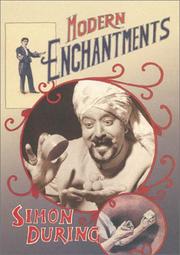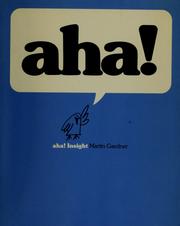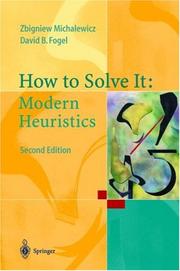| Listing 1 - 10 of 10 |
Sort by
|

ISBN: 052182513X 9780521825139 Year: 2005 Publisher: Cambridge Cambridge University Press
Abstract | Keywords | Export | Availability | Bookmark
 Loading...
Loading...Choose an application
- Reference Manager
- EndNote
- RefWorks (Direct export to RefWorks)
English literature --- Drama --- anno 1600-1699 --- anno 1500-1599 --- anno 1400-1499 --- Theater --- England --- History --- Magic tricks

ISBN: 0674034392 9780674034396 0674006070 9780674006072 0674013719 9780674013711 Year: 2002 Publisher: Cambridge, Mass. Harvard University Press
Abstract | Keywords | Export | Availability | Bookmark
 Loading...
Loading...Choose an application
- Reference Manager
- EndNote
- RefWorks (Direct export to RefWorks)
Magic, Simon During suggests, has helped shape modern culture. Devoted to this deceptively simple proposition, this work gets at the aesthetic questions at the very heart of the study of culture.
Magic tricks --- Magicians --- Conjurers --- Conjurors --- Enchanters --- Illusionists (Magicians) --- Legerdemainists --- Sorcerers --- Entertainers --- Tricksters --- Wizards --- History. --- Christian spirituality --- Film --- History of civilization --- anno 1800-1899 --- MAGIE --- HISTOIRE
Book
ISBN: 9780805092813 9780312611675 Year: 2010 Publisher: New York, N.Y. Henry Holt and Co
Abstract | Keywords | Export | Availability | Bookmark
 Loading...
Loading...Choose an application
- Reference Manager
- EndNote
- RefWorks (Direct export to RefWorks)
Stephen Macknik and Susana Martinez-Conde, the founders of the new discipline of neuromagic, have convinced some of the world's greatest magicians to allow scientists to study their techniques for tricking the brain. This book is the result of the authors' yearlong, world-wide exploration of magic and how its principles apply to our behavior. Magic tricks fool us because humans have hardwired processes of attention and awareness that are hackable--a good magician uses your mind's own intrinsic properties against you. Now magic can reveal how our brains work in everyday situations. For instance, if you've ever bought an expensive item you'd sworn you'd never buy, the salesperson was probably a master at creating the "illusion of choice," a core technique of magic. The implications of neuromagic go beyond illuminating our behavior; early research points to new approaches for everything from the diagnosis of autism to marketing techniques and education.--From publisher description.
Cognitive psychology --- Physiology of nerves and sense organs --- Magic tricks. --- Neurosciences. --- Optical illusions. --- Magic tricks --- Neurosciences --- Optical illusions --- Neural sciences --- Neurological sciences --- Neuroscience --- Medical sciences --- Nervous system --- Conjuring --- Legerdemain --- Parlor magic --- Prestidigitation --- Sleight of hand --- Tricks --- Illusions, Optical --- Hallucinations and illusions --- Physiological optics --- Visual perception
Book
ISBN: 9781137497680 Year: 2015 Publisher: New York, N.Y. Palgrave Macmillan
Abstract | Keywords | Export | Availability | Bookmark
 Loading...
Loading...Choose an application
- Reference Manager
- EndNote
- RefWorks (Direct export to RefWorks)
History of civilization --- History of France --- anno 1800-1899 --- Science and magic --- Magic shows --- Magic tricks --- Magicians --- Scientific recreations --- Entertainment events --- Sciences et magie --- Spectacles de magie --- Prestidigitation --- Magiciens --- Jeux scientifiques --- Spectacles et divertissements --- History --- Histoire --- History.

ISBN: 0691023514 0691079587 0691652961 1400876087 0691626766 Year: 1994 Publisher: Princeton, N.J. Princeton University Press
Abstract | Keywords | Export | Availability | Bookmark
 Loading...
Loading...Choose an application
- Reference Manager
- EndNote
- RefWorks (Direct export to RefWorks)
What is so special about the number 30? How many colors are needed to color a map? Do the prime numbers go on forever? Are there more whole numbers than even numbers? These and other mathematical puzzles are explored in this delightful book by two eminent mathematicians. Requiring no more background than plane geometry and elementary algebra, this book leads the reader into some of the most fundamental ideas of mathematics, the ideas that make the subject exciting and interesting. Explaining clearly how each problem has arisen and, in some cases, resolved, Hans Rademacher and Otto Toeplitz's deep curiosity for the subject and their outstanding pedagogical talents shine through.Originally published in 1957.The Princeton Legacy Library uses the latest print-on-demand technology to again make available previously out-of-print books from the distinguished backlist of Princeton University Press. These editions preserve the original texts of these important books while presenting them in durable paperback and hardcover editions. The goal of the Princeton Legacy Library is to vastly increase access to the rich scholarly heritage found in the thousands of books published by Princeton University Press since its founding in 1905.
Mathematics --- Mathematical recreations. --- Algèbre --- Algebra --- Mathematical puzzles --- Number games --- Recreational mathematics --- Recreations, Mathematical --- Puzzles --- Scientific recreations --- Games in mathematics education --- Magic squares --- Magic tricks in mathematics education --- Algèbre --- Algebra. --- Mathematiques --- Jeux et recreations --- Geometrie --- Vulgarisation
Book
ISBN: 0810451034 Year: 1975 Publisher: Rochelle Park Hayden
Abstract | Keywords | Export | Availability | Bookmark
 Loading...
Loading...Choose an application
- Reference Manager
- EndNote
- RefWorks (Direct export to RefWorks)
Mathematical recreations --- 519.68 --- 519.68 Computer programming --- Computer programming --- Mathematical puzzles --- Number games --- Recreational mathematics --- Recreations, Mathematical --- Puzzles --- Scientific recreations --- Games in mathematics education --- Magic squares --- Magic tricks in mathematics education --- Data processing --- Computer architecture. Operating systems
Book
ISBN: 0140220410 Year: 1978 Publisher: Harmondsworth Penguin Books
Abstract | Keywords | Export | Availability | Bookmark
 Loading...
Loading...Choose an application
- Reference Manager
- EndNote
- RefWorks (Direct export to RefWorks)
Mathematics --- Mathematical recreations --- Mathematical puzzles --- Number games --- Recreational mathematics --- Recreations, Mathematical --- Puzzles --- Scientific recreations --- Games in mathematics education --- Magic squares --- Magic tricks in mathematics education --- Wiskundige puzzels. --- Wiskundige spelen.

ISBN: 0894540017 9780894540011 Year: 1978 Publisher: New York Freeman
Abstract | Keywords | Export | Availability | Bookmark
 Loading...
Loading...Choose an application
- Reference Manager
- EndNote
- RefWorks (Direct export to RefWorks)
Mathematics --- Mathematical recreations --- Jeux mathématiques --- 159.953.5 --- Puzzles --- Problem solving --- Methodology --- Psychology --- Decision making --- Executive functions (Neuropsychology) --- Amusements --- Games --- Riddles --- Mathematical puzzles --- Number games --- Recreational mathematics --- Recreations, Mathematical --- Scientific recreations --- Games in mathematics education --- Magic squares --- Magic tricks in mathematics education --- Leren. Verwerven van kennis --- 159.953.5 Leren. Verwerven van kennis --- Jeux mathématiques --- Jeu
Book
ISBN: 071671986X 0716719878 9780716719861 9780716719878 Year: 1989 Publisher: New York, N.Y. Freeman
Abstract | Keywords | Export | Availability | Bookmark
 Loading...
Loading...Choose an application
- Reference Manager
- EndNote
- RefWorks (Direct export to RefWorks)
51-8 --- 51-8 Mathematical games and recreations --- Mathematical games and recreations --- Mathematical recreations. --- Jeux mathématiques --- Jeux mathématiques --- Mathematical recreations --- Mathematical puzzles --- Number games --- Recreational mathematics --- Recreations, Mathematical --- Puzzles --- Scientific recreations --- Games in mathematics education --- Magic squares --- Magic tricks in mathematics education --- Mathematics

ISBN: 9783642061349 3642061346 3540224947 3662078074 3540660615 9783540224945 9783540660613 Year: 2000 Publisher: Berlin Springer
Abstract | Keywords | Export | Availability | Bookmark
 Loading...
Loading...Choose an application
- Reference Manager
- EndNote
- RefWorks (Direct export to RefWorks)
No pleasure lasts long unless there is variety in it. Publilius Syrus, Moral Sayings We've been very fortunate to receive fantastic feedback from our readers during the last four years, since the first edition of How to Solve It: Modern Heuristics was published in 1999. It's heartening to know that so many people appreciated the book and, even more importantly, were using the book to help them solve their problems. One professor, who published a review of the book, said that his students had given the best course reviews he'd seen in 15 years when using our text. There can be hardly any better praise, except to add that one of the book reviews published in a SIAM journal received the best review award as well. We greatly appreciate your kind words and personal comments that you sent, including the few cases where you found some typographical or other errors. Thank you all for this wonderful support.
Problem solving. --- Heuristic programming. --- Operational research. Game theory --- Heuristic --- Mathematical recreations --- Problem solving --- 518.5 --- 658.012 --- 681.3*I28 --- Methodology --- Psychology --- Decision making --- Executive functions (Neuropsychology) --- Mathematical puzzles --- Number games --- Recreational mathematics --- Recreations, Mathematical --- Puzzles --- Scientific recreations --- Games in mathematics education --- Magic squares --- Magic tricks in mathematics education --- Philosophy --- 681.3*I28 Problem solving, control methods and search: backtracking; dynamic program- ming; graph and tree search strategies; heuristics; plan execution, formationand generation (Artificial intelligence)--See also {681.3*F22} --- Problem solving, control methods and search: backtracking; dynamic program- ming; graph and tree search strategies; heuristics; plan execution, formationand generation (Artificial intelligence)--See also {681.3*F22} --- Operationeel onderzoek. Speltheorie --- Planning in het bedrijf --- Problem Solving. --- Heuristic. --- Mathematical recreations. --- heuristiek --- kansrekening --- kunstmatige intelligentie (artificiële intelligentie) --- statistiek --- wiskunde --- 681.3*I2 --- 681.3*I2 Artificial intelligence. AI --- Artificial intelligence. AI --- Résolution de problème --- Heuristique --- Jeux mathématiques --- Planning (firm) --- Artificial intelligence. Robotics. Simulation. Graphics --- probleemoplossend denken --- algoritmen --- Computer programming. --- Algorithms. --- Economics, Mathematical . --- Calculus of variations. --- Statistics . --- Computational complexity. --- Programming Techniques. --- Algorithm Analysis and Problem Complexity. --- Quantitative Finance. --- Calculus of Variations and Optimal Control; Optimization. --- Statistics, general. --- Complexity. --- Computers --- Electronic computer programming --- Electronic data processing --- Electronic digital computers --- Programming (Electronic computers) --- Coding theory --- Complexity, Computational --- Machine theory --- Statistical analysis --- Statistical data --- Statistical methods --- Statistical science --- Mathematics --- Econometrics --- Economics --- Mathematical economics --- Algorism --- Algebra --- Arithmetic --- Isoperimetrical problems --- Variations, Calculus of --- Maxima and minima --- Programming --- Foundations --- artificiële intelligentie (AI) --- Basic Sciences. Statistics --- Probability Theory, Sampling Theory.
| Listing 1 - 10 of 10 |
Sort by
|

 Search
Search Feedback
Feedback About UniCat
About UniCat  Help
Help News
News